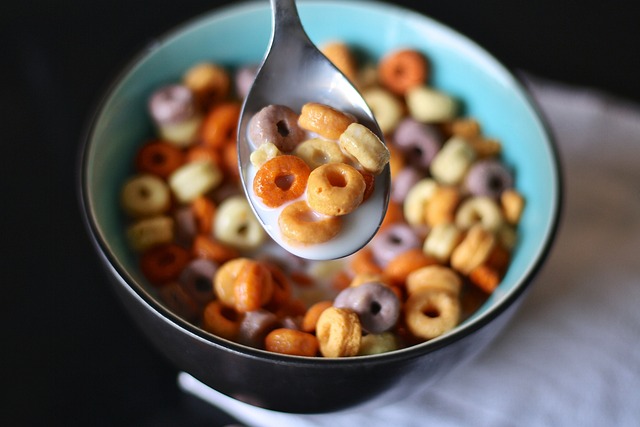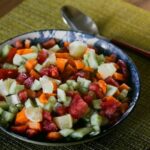Finding the right balance in your diet doesn’t have to be complicated. The key is to eat the right amount of calories based on your activity level so the energy you consume equals the energy you use. Eat too much, and your body stores the extra as fat. Eat too little, and you’ll lose weight—sometimes at the expense of energy and muscle.
But a truly healthy lifestyle goes beyond calorie counting. It’s about the quality of your food, your daily habits, and listening to your body’s needs.
Here are 8 practical tips to help you eat well, feel better, and live healthier
1. Base Your Meals on Higher-Fibre Starchy Carbohydrates
Starchy carbs like potatoes, bread, rice, pasta and cereals should make up about a third of your diet.
Choose wholegrain or higher-fibre versions like
-
Brown rice
-
Whole wheat pasta
-
Potatoes with the skins on
These keep you fuller for longer and provide more nutrients. But watch what you add to them—butter, creamy sauces, and oils can quickly turn a healthy meal into a calorie bomb.
2. Eat Plenty of Fruits and Vegetables
Aim for at least 5 portions of a variety of fruits and veggies every day. They can be fresh, frozen, canned, dried or juiced.
Easy ways to get your 5-a-day
-
Add fruit to your cereal or yogurt
-
Snack on carrot sticks or a banana
-
Have a side salad with your lunch or dinner
Note: A glass of juice counts as only one portion, and try to limit juice or smoothies to 150ml a day due to their high sugar content.
3. Eat More Fish – Especially Oily Fish
Fish is an excellent source of protein, vitamins, and minerals. Try to eat 2 portions per week, including 1 oily fish like:
-
Salmon
-
Mackerel
-
Sardines
-
Trout
Oily fish is rich in omega-3 fatty acids, which support heart health. You can opt for fresh, frozen, or canned fish—but keep an eye on salt content in processed versions.
4. Cut Down on Saturated Fat and Sugar
You need some fat in your diet—but too much saturated fat increases your cholesterol and risk of heart disease.
Limit foods like
-
Fatty cuts of meat
-
Butter, cream, and cheese
-
Cakes, biscuits, and pies
Choose unsaturated fats like –
-
Olive or vegetable oil
-
Avocados
-
Nuts
-
Oily fish
Also, try to reduce free sugars—the kind added to drinks and processed foods. Watch out for sugary cereals, fizzy drinks, and sweets. Use food labels to guide your choices
-
More than 22.5g of sugar per 100g = high sugar
-
5g or less per 100g = low sugar
5. Eat Less Salt – No More Than 6g a Day
Too much salt raises your blood pressure and increases your risk of heart disease and stroke. Even if you don’t add salt to meals, it’s often hidden in processed foods like:
-
Bread
-
Breakfast cereals
-
Ready-made sauces and soups
Check food labels: More than 1.5g salt per 100g is high.
6. Get Active and Maintain a Healthy Weight
Healthy eating and regular exercise go hand in hand. Physical activity
-
Improves your mood and energy
-
Helps maintain or lose weight
-
Reduces your risk of chronic illnesses
If you’re trying to lose weight, focus on eating fewer calories and moving more. Use tools like a BMI calculator to track your progress and set goals.
7. Don’t Forget to Hydrate
You should aim to drink 6 to 8 glasses of fluid daily. Best choices include
-
Water
-
Lower-fat milk
-
Sugar-free drinks
-
Herbal teas
Avoid sugary sodas or energy drinks—they’re high in calories and bad for your teeth. Even natural juices should be limited to 150ml per day.
Remember to drink more during hot days or when exercising!
8. Don’t Skip Breakfast
Breakfast kickstarts your metabolism and gives you the energy to begin your day. A healthy breakfast can help:
-
Prevent overeating later
-
Improve concentration
-
Boost your overall mood
Try –
-
Wholegrain cereals with semi-skimmed milk
-
Wholegrain toast with a boiled egg
-
A fruit smoothie with oats and yogurt
Eating well doesn’t mean dieting or denying yourself. It means nourishing your body with balanced meals, moving your body regularly, and creating habits that support long-term wellness.
Start small—add one or two of these habits into your daily routine. Over time, they’ll become second nature.


